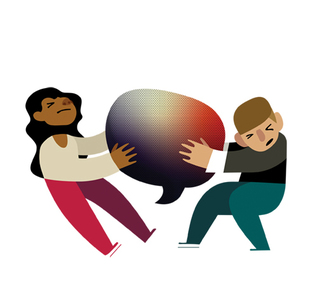 loading
loading
FindingsDon't argue. Just talk data.How people change their minds.  Alex Eben MeyerView full imageTrying to get your recalcitrant cousin to change his mind about an issue dear to your heart may feel like rolling a boulder uphill. But Alexander Coppock, a political science professor, says your interchanges may not be as futile as they seem. In his new book—Persuasion in Parallel: How Information Changes Minds About Politics—Coppock argues that individuals of all political inclinations can change their minds in response to information. The common view, he says, is that people tend to reason against information they dislike and expend cognitive effort to resist that information. “But the evidence for that view is based on weak research designs,” he adds. Instead, using randomized control trials and a meta-analysis of others’ experiments, Coppock shows that people at different points on the political spectrum, when presented with persuasive information, will change their minds approximately the same amount.
The comment period has expired.
|
|